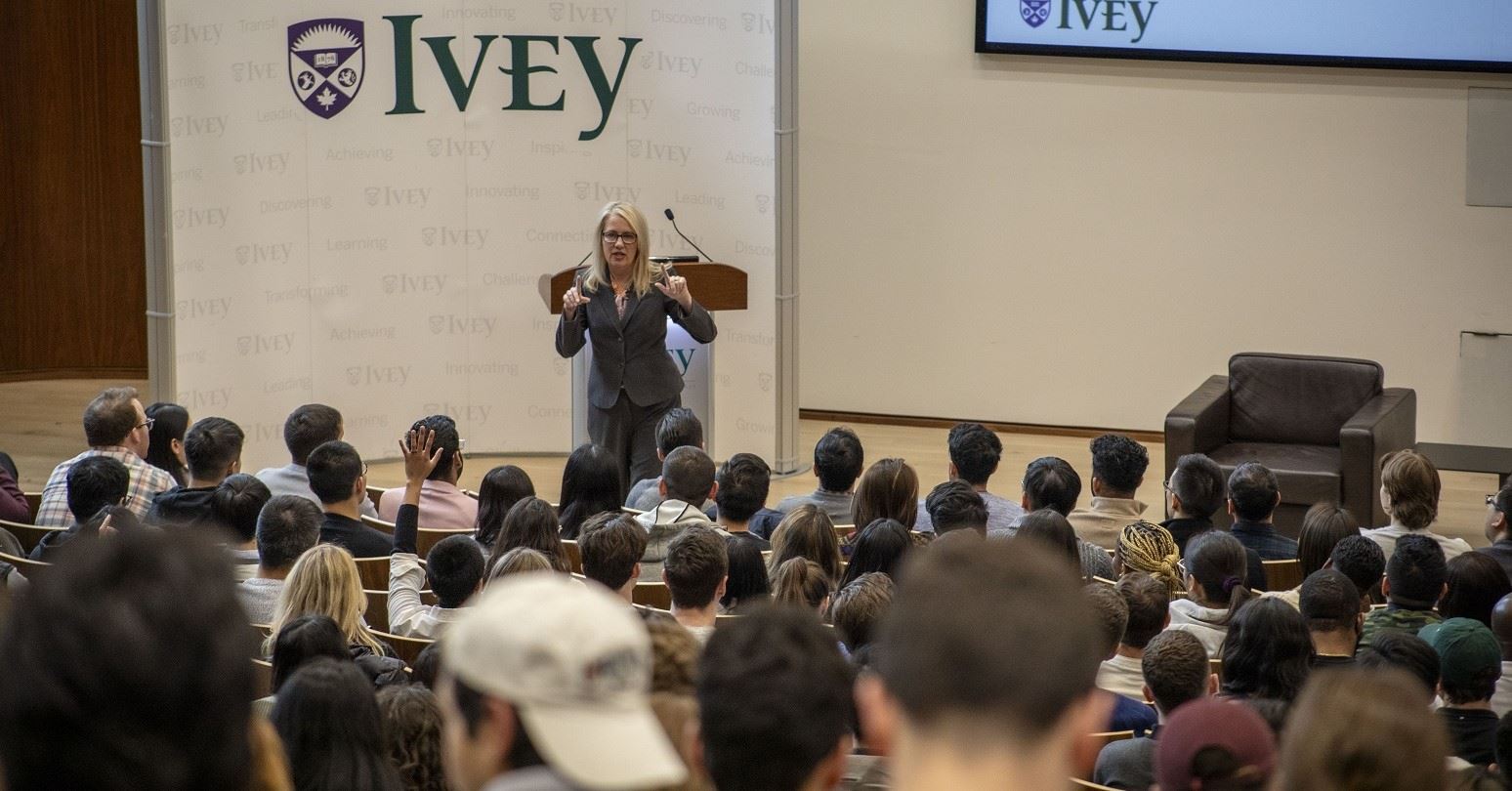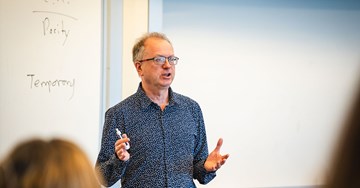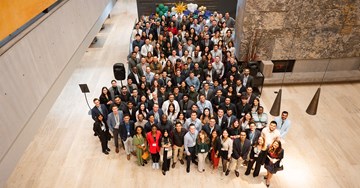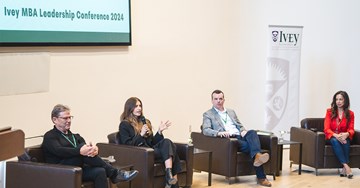On March 20, Ivey’s MBA and HBA2 students had a chance to hear from Cynthia Cooper, the internationally acclaimed whistleblower who exposed one of the largest business and accounting scandals in history – the WorldCom scandal. While she was Vice President of Internal Audit at WorldCom in 2002, Cooper discovered more than $3.8 billion of fraudulent balance sheet entries and eventually WorldCom was forced to admit it had overstated its assets by more than $11 billion. In her blog below, MBA student Ego Ogunmola-Daomi discusses the lessons learned from Cooper’s presentation and how they apply today.
It is not every day that your business case comes to life. In fact, cases can seem very abstract and distant, although they have valuable lessons and are always relevant to help us navigate the business world. We had the opportunity to have Cynthia Cooper speak to us about her time at WorldCom and her role as a whistleblower, including pre- and post-fraud revelations and how she navigated her life after such a monumental event.
What happened at WorldCom?
The WorldCom fraud was not your typical embezzlement or misappropriation of funds; what makes it different was the use of financial reporting and accounting to mislead investors and stakeholders on the true nature of the company’s finances. WorldCom was engaged in accrual reversals and asset recapitalization by under reporting expenses and over reporting assets to the tune of $3.8 billion. Although this occurred 20 years ago, we still see today more and more the lengths executives are willing to go to keep share prices up and maintain market confidence. There is ever-growing pressure to keep a positive balance sheet and, in the case of WorldCom, have an expense ratio of 42 per cent.
Lessons learned from a whistleblower
Having Cooper speak to the MBA and HBA2 classes gave students a great opportunity to gain insights that could not have been found just by reading the WorldCom case. During the case debrief with our brilliant Managerial Accounting and Control Professor Vaughan Radcliffe, the main question posed to Cooper was: How did you reconcile your personal feelings seeing as the end of WorldCom meant the end of the growing financial sustainability for Mississippi? She was able to broadly answer the question by saying that, at the time the fraud was uncovered, she did not know the magnitude of it and it was important to her to follow her gut and be logical. She told how her life changed drastically afterward, but said she would do it again as she has seen, through this case, the magnitude of what whistleblowing can do. Her actions led to legislation and improvement in the accounting profession. Cooper also spoke about her life after uncovering the fraud and the deposition, telling how she decided not to return to ‘corporate employment’ as she felt she could make a greater impact through sharing her story and encouraging people to understand the benefits of whistleblowing.
The importance of following the money
Cooper told us her decision to uncover the fraud was not premeditated. Like accountants often say, she “followed the money.” As a woman in 2002, taking on one of the biggest telecom companies in the U.S. was not easy. Cooper said her aim to always being on the right side of the law and follow the applicable laws made it easy for her to decide to disclose without internal personal conflict.
Implications for today
At the end of the session, we left with a renewed sense of gratitude for pioneers like Cooper as their work led to the introduction of the Sarbanes-Oxley Act and initiatives like whistleblowing hotlines. These supports are available if and when we find ourselves in situations where policies are not adequately implemented or a whistleblower is being disparaged.
As future business leaders, it is increasingly important to know which side of the coin we want to stand on. Are we going to use our Ivey knowledge to consent to fraud either in a supervisory or advisory capacity? Or are we going to be like Cooper and go the length to uncover the truth?
We should all strive to be like Cooper in every position we find ourselves. The overall lesson is we need to speak out and speak up in unclear or downright shady circumstances – a lesson that can be applied in business and in life.



